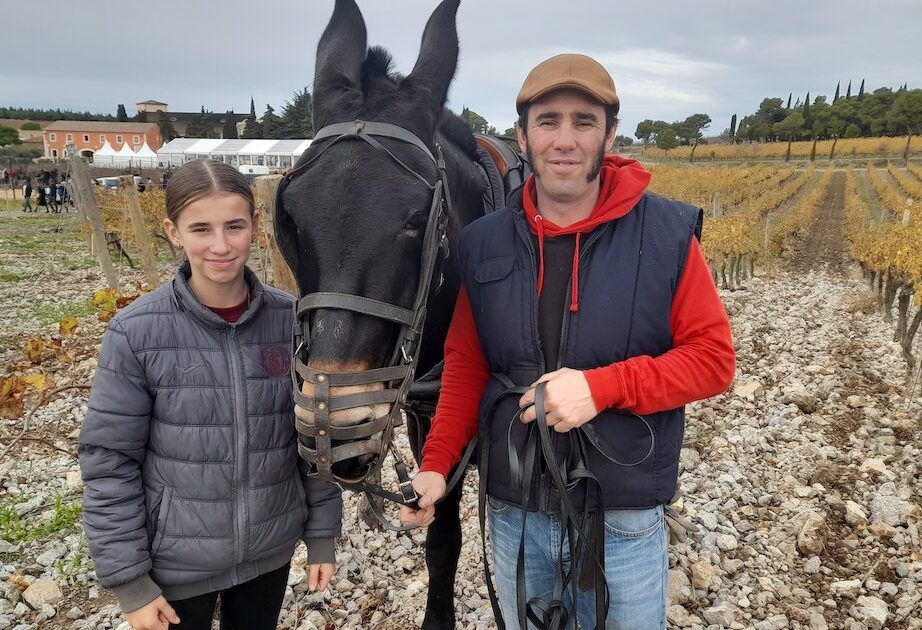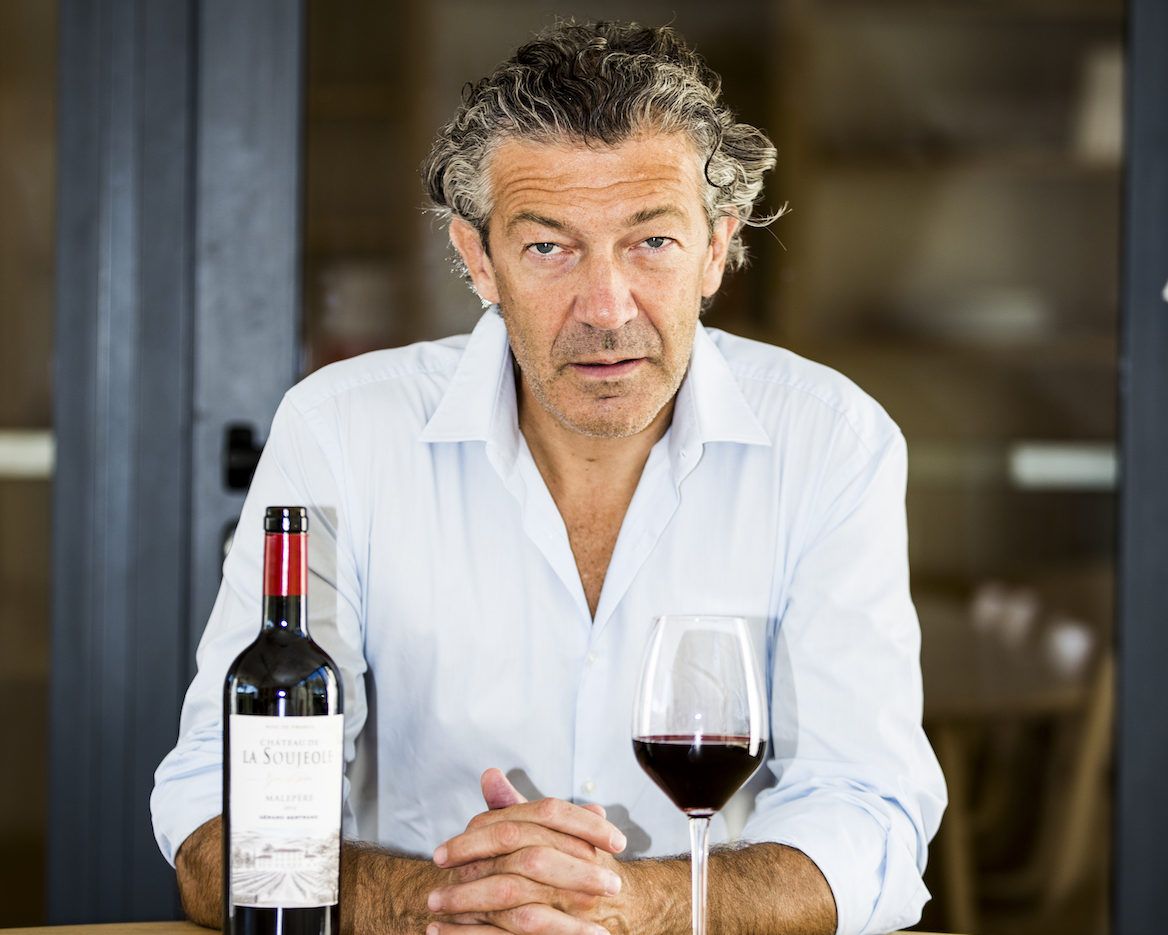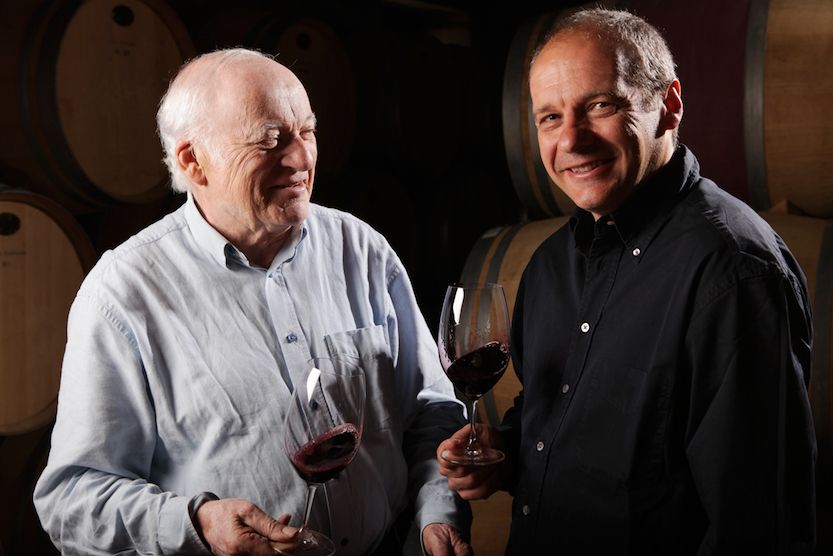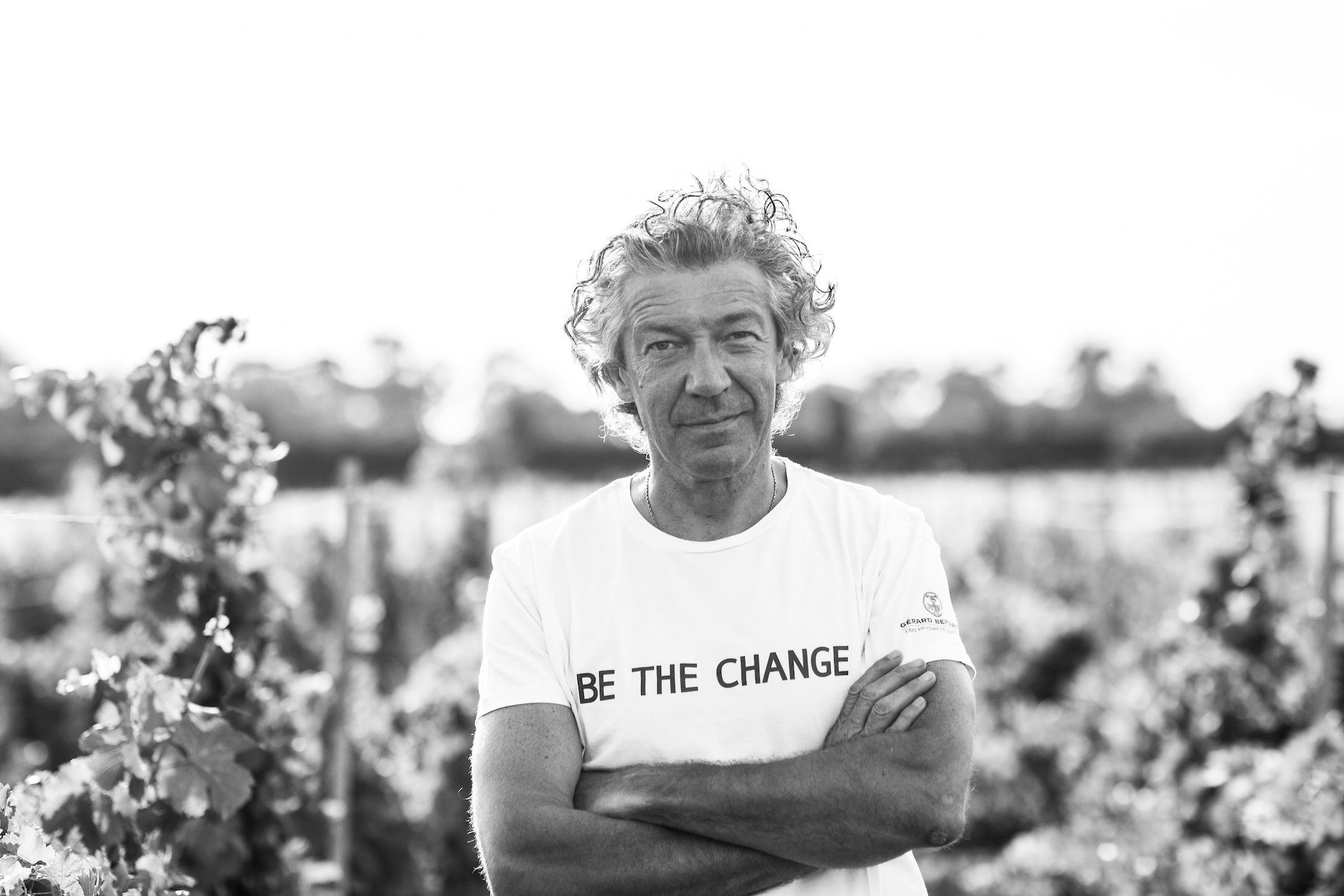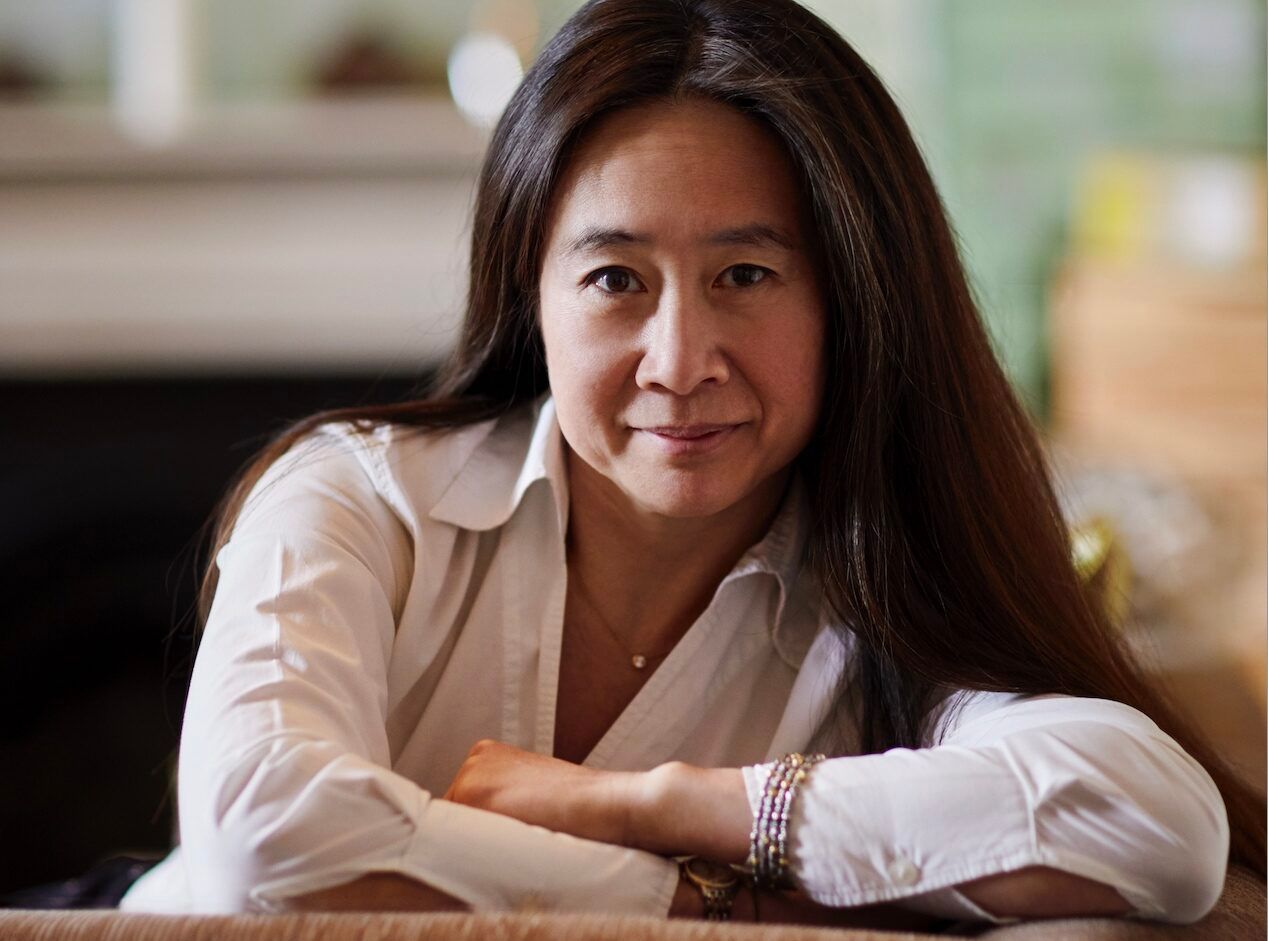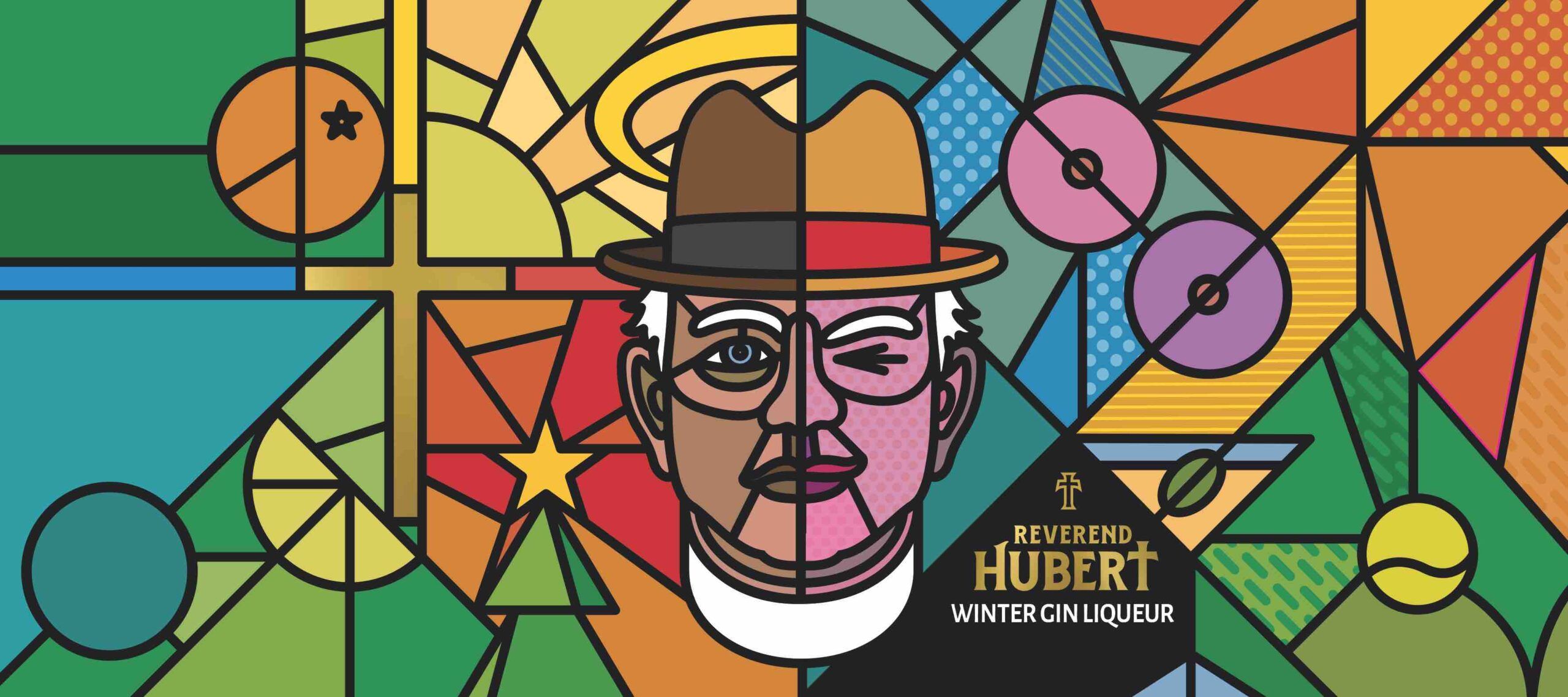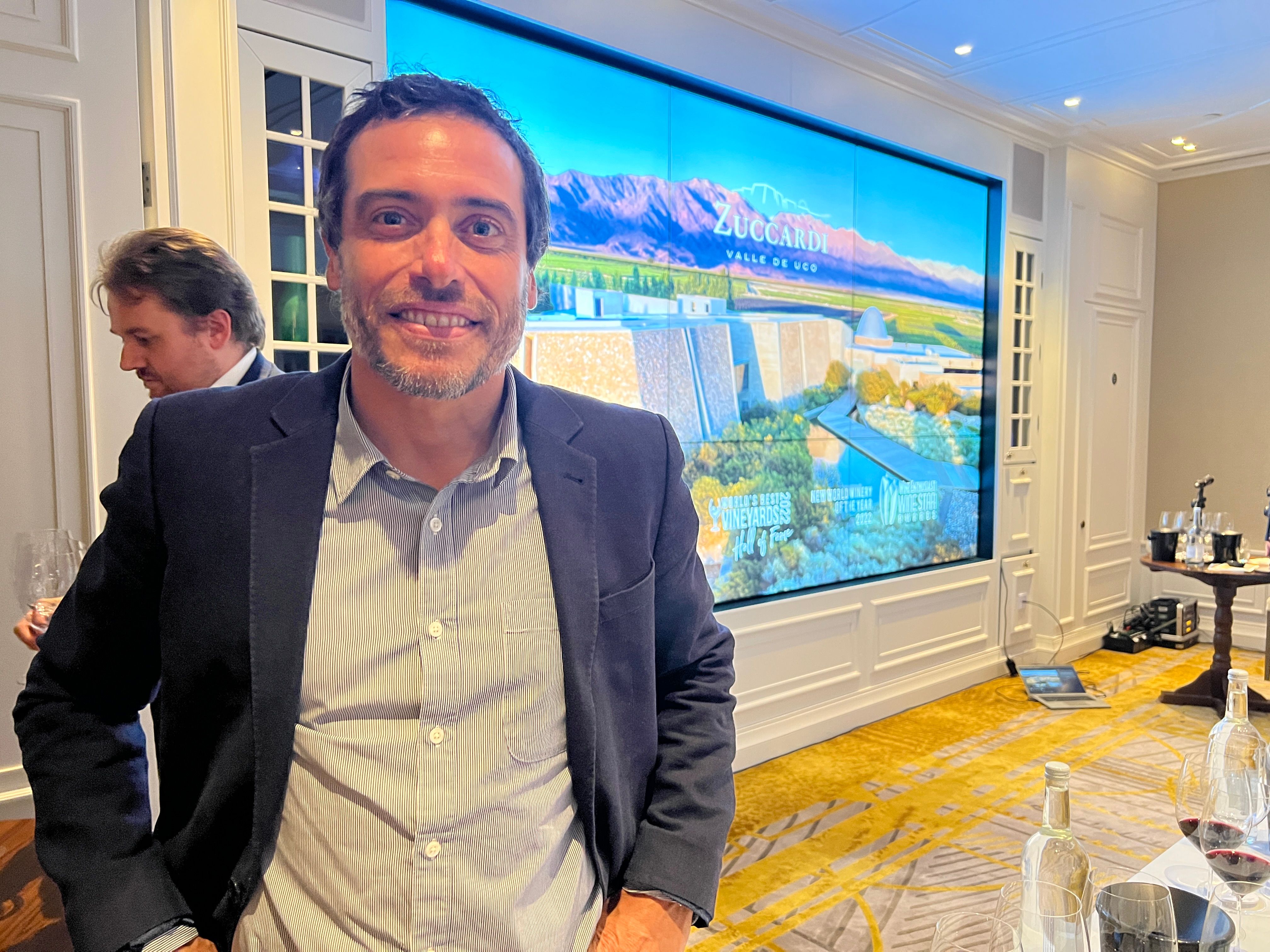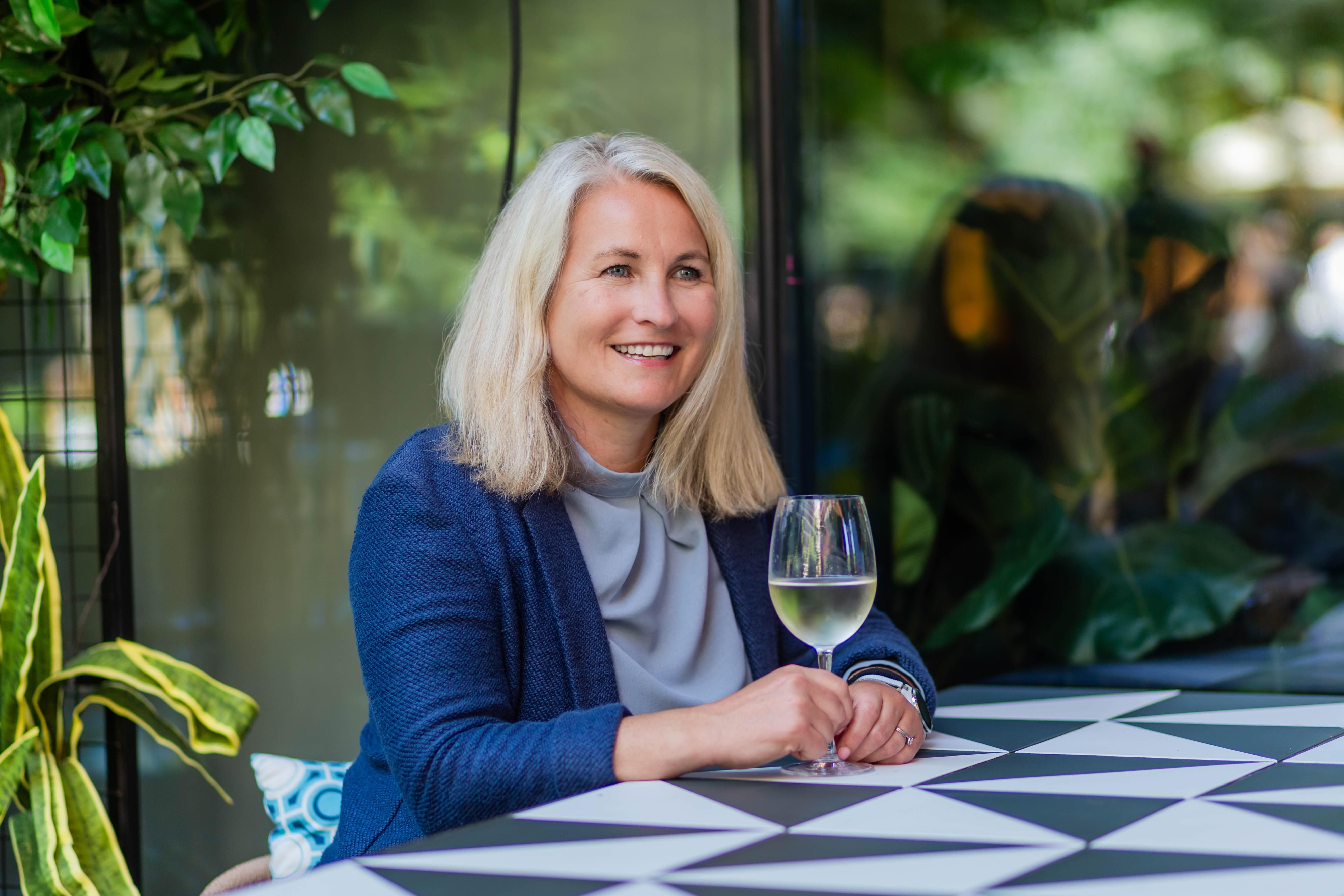“We stand on the threshold of a new era, which will demand courage, solidarity and a disruptive vision,” says Bertrand.
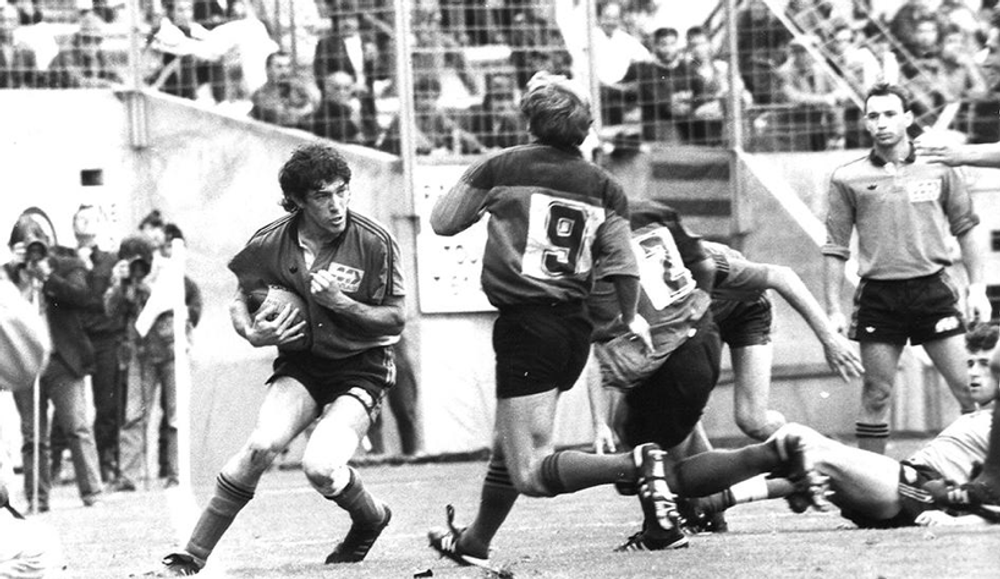
Gérard Bertrand, or Le Grand as he is known, played rugby for his home town of Narbonne for 14 years
During the Rugby World Cup in France in the autumn, Gérard Bertrand entertained a trio of famous ex-players at his L’Hospitalet winery and hotel near Narbonne. Bertrand was himself an accomplished flanker for the Stade Français club in Paris, whom he captained, so he felt in good company with fellow forwards Thierry Dusautoir of France, Richie McCaw of New Zealand and Tendai Mtawarira of South Africa, aka ‘The Beast.’
The latter, a self-confessed wine lover, even if he had to restrict his intake of it during his 117-cap international career, recently launched his own bespoke The Beast Wine Collection.
“I told the Beast to ring me if he needed any advice,” Bertrand chuckled. “But when he got home, he was calling me five to ten times a week, I had to say to him, ‘Beast, I’ve got a business to run with 450 employees, so you can’t keep calling me this like this.’”
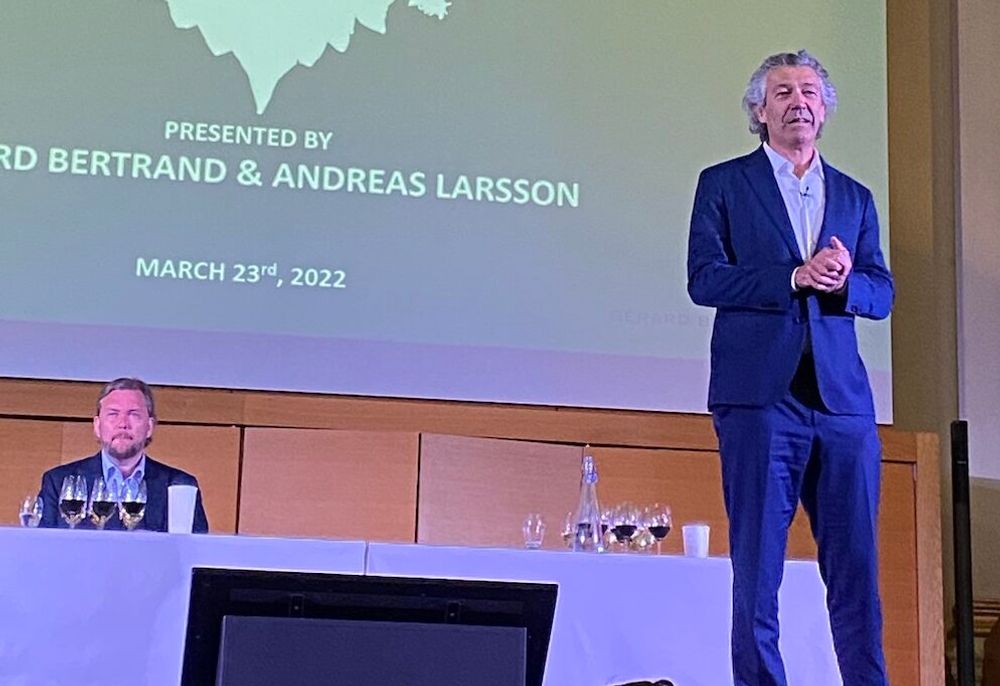
Gérard Bertrand is a regular on the circuit speaking at Porto climate conferences and here at the launch of his book Nature at Heart
Bertrand the thinker
The story encapsulates Bertrand, a man of great charisma and generosity of spirit. His staff love him as he looks after them so well, but he is such a driven character that he will not allow too many distractions. It is one reason why his remarkable array of wine labels has been built up so successfully, now sold in 180 countries. It is an all-encompassing stable of Languedoc wines – red, white, rosé, orange and sparkling. The world’s most expensive rosé – Clos du Temple – is one of them, retailing as it does at €195.
Behind the bling and Bertrand’s extrovert showmanship, however, lies a deep thinker who admits he is obsessed by spirituality and sense of place. He is proud of Narbonne, his home town for whom he also played rugby for 14 years, and he is passionate about biodynamics. Indeed, all of his 17 wine estates are either farmed biodynamically or in the process of conversion.
“The essence of an exceptional wine is a combination of time, space, energy, spirit and soul,” he wrote in his book Wine, Moon and Stars. “A great wine is connected to its terroir, its grape variety and the plot of its land of birth, but also to the universe that surrounds it.”
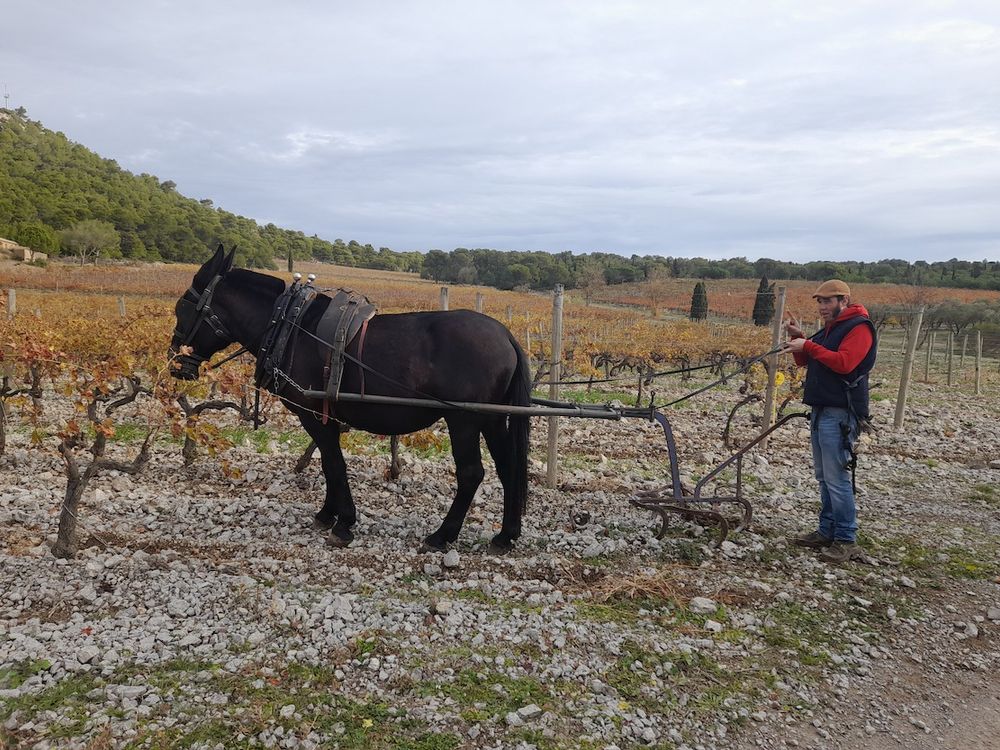
Vanina, one of seven mules helping at the winter pruning celebration
Ardent disciple of Steiner
We are down at Bertrand’s Languedoc base, L’Hospitalet, in the picturesque Massif de la Clape for a winter pruning celebration in early December in what is the first period of four months of pruning. A team of 40 are tasked with pruning the 4 million vines on Bertrand’s 2,420 acres of Languedoc vineyards, which are ploughed by seven mules to avoid soil compaction. One of them, named Vanina, is a magnificent beast, a 15-year old standing close to 17 hands.
“She is stronger than a horse, eats less and will live longer – to around 50,” purrs her devoted handler, whose commands we see her responding to. “She works five or six days a week for ten and a half months a year. She has a sixth sense about the state of the soil – occasionally she will refuse to plough, so we respect her intuition.”
Bertrand’s belief in the need for biodynamic farming is formidable.
“Taking care of the Earth has become a priority,” he said. “Not just the climate, the oceans and the forests but also the pollinators, soils and living species are all suffering from human activity. Biodiversity is in steep decline, and deregulation has become a threat to life on Earth, which is regarded with almost universal indifference. Respecting ecology is an act of civic duty that requires open mindedness at the service of the biosphere, because pollution and global warming know no frontiers.”
An ardent disciple of the founder of the biodynamic approach to agriculture, Rudolf Steiner, Bertrand is as philosophical as he is clear on what he thinks needs to be effected.
“Our commitment to organic and biodynamic farming has enabled us to conduct large-scale experiments on its relevance, especially in relation to wine-growing,” he continued. “A living soil strengthens the plants growing in it and helps them to capture the life forces emanating from the sun and the planets. We have to repair the damage inflicted on our Earth in the last fifty years, and return to a baseline of harmony and sustainability.”
“We are limited and incarnate, but our spirituality is limitless. Since Abraham, Jesus and Mohammad and, more recently, Goethe, Steiner, Mother Teresa and Mandela, prophets and exceptional people have each carried their epochs forward. We stand on the threshold of a new era, which will demand courage, solidarity and a disruptive vision.”
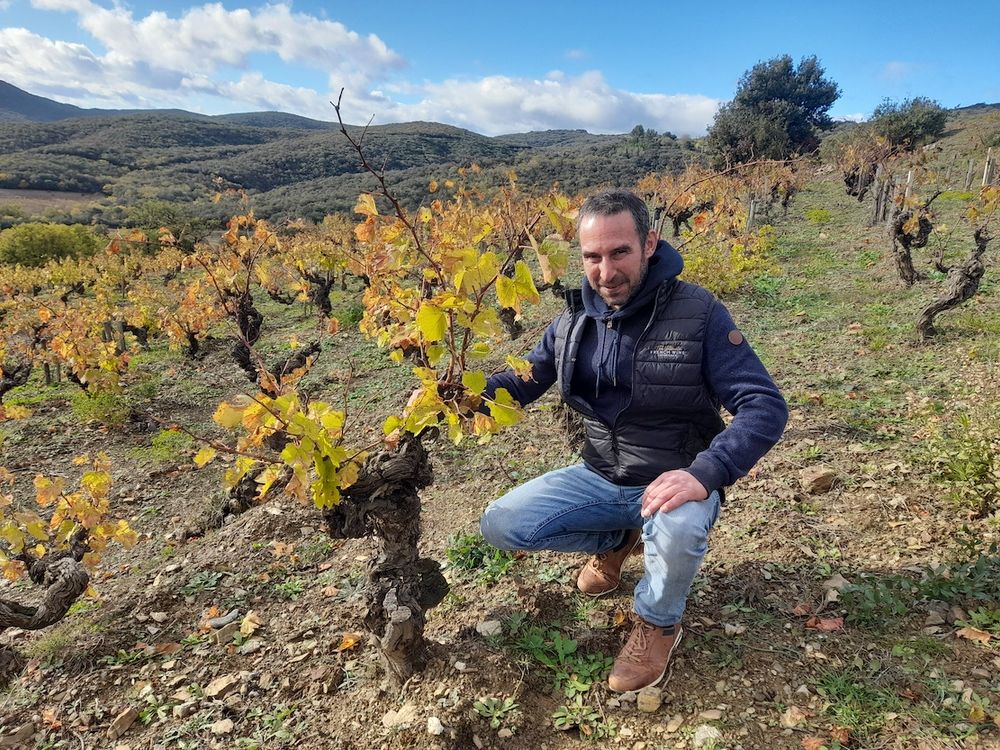
An honour to work here: Benjamin Gadois, winemaker for Clos du Temple
World’s most expensive Rosé
Meeting the challenges of global warming is one of Bertrand’s preoccupations, with the fruit for his Clos du Temple Rosé being picked earlier than ever this year. Benjamin Gadois, the winemaker and vineyard manager responsible for it, revealed that harvesting had started on 17 August.
“I’m really happy with this harvest as I was a bit worried by the high temperatures,” Gadois told me. “This year, we are looking to make 30,000 bottles of Clos du Temple, which is the highest number ever.”
Production has increased steadily from 7,000 bottles in the inaugural 2018 vintage, 12,000 in 2019, 20,000 in 2020 and 25,000 in both 2021 and 2022.
The varietals grown are Cinsault, Grenache, Syrah and Mourvèdre, with a dash of Viognier being added to give te wine florality. Yields are a maximum of 30hl/ha from vines aged between 35 and 80 years. Planted on schist and limestone soils between 200-240m above sea level in the cradle of rosé in France – Cabrières near Montpellier – they benefit from a Mediterranean climate without any hydric stress. Between 500-600 millimetres of rain each year replenish a complex subterranean circulation network under the 12 hectares of vines, which enjoy south-west exposure.
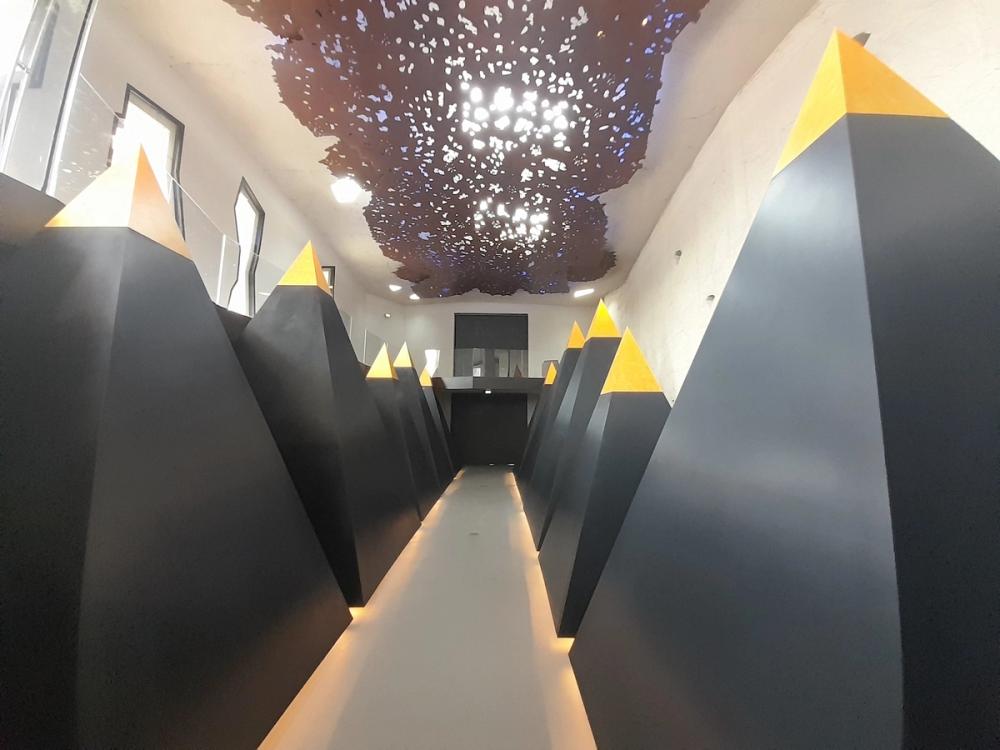
Clos du Temple fermentation vessels
Each of the 11 plots are vinified separately in pyramid-shaped vessels, made of bauxite with stainless steel interiors, in the magnificent new hillside winery designed by renowned architect, François Fontès. Fermentation is completed in oak barrels of between 225 to 500 litres (50% new, 50% second fill, with really light toast), which are turned weekly to encourage lees contact. The juice spends no time on the skins, which explains its very pale colour – more yellow than pink.
The key to Clos du Temple’s freshness is its low pH – between 3.3 and 3.5 according to Gadois. This year it was higher than normal in the Cinsault, so he had to add some tartaric acid to that varietal’s juice (but not the others). “In the south of France, it’s difficult not to add some acid, but our low pH means I do not need to use much sulphur,” he said. Indeed, his levels are low, with total SO2 typically 40-45mg/l and free SO2 25-30 mg/l.
“It is an honour for me to open these gates every day,” Gadois confessed. He is returning that honour, though, by making some exquisite rosé. The 2019 vintage was judged best of its type in the world by the Global Rosé Masters 2020, and the 2022 is another classic, considered by Bertrand himself to be one of the three best produced in his 36 years as a vigneron.
“Rose petals on an ocean breeze with lemongrass behind white nectarine,” he purred. Throw in hints of almond and aromas of apricot and white peach, as well as tension, saline minerality, textural complexity and exceptional length. A gastronomic wine, or an aperitif, it has the potential to age – for ten to 20 years in Bertrand’s view.
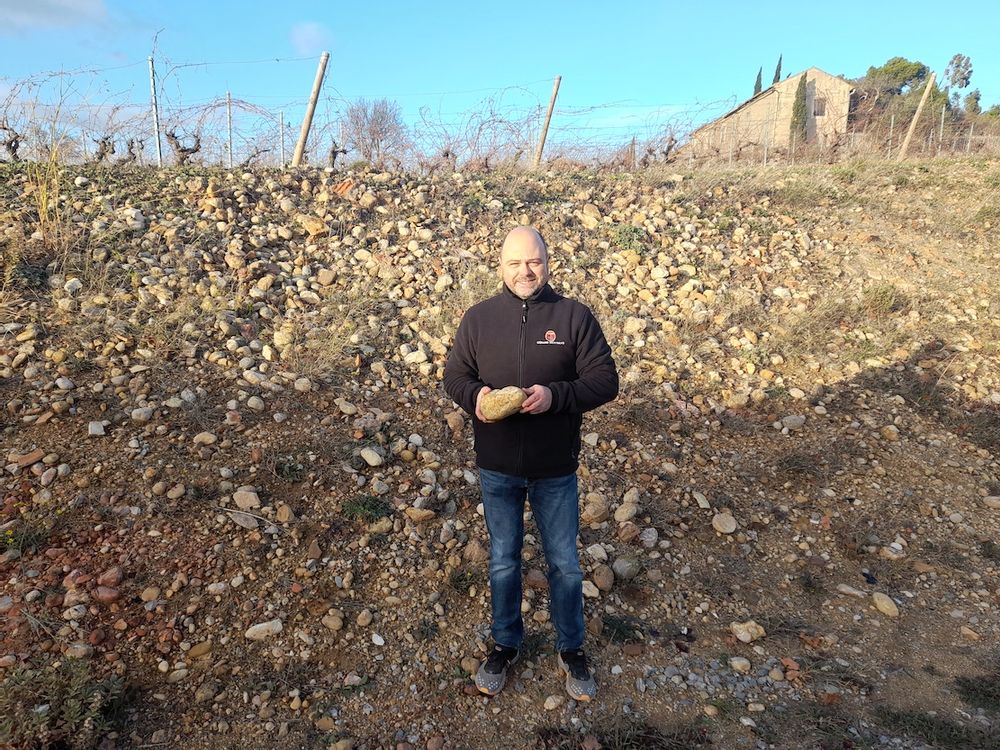
Winemaker Arnaud Saulnier, with Villemajou soils
Villemajou – where it all began
Apart from his most celebrated red, Clos d’Ora, another super premium wine of Le Grand (‘the tall one’), as Bertrand is known, is La Forge 2021. Made up of two-thirds Carignan from 100-year old bush vines, and a third Syrah, it comes from Château de Villemajou in the Corbières-Boutenac appellation. It was here, in 1975, that Bertrand, aged 10, took part in his first grape harvest (two years after his late father Georges had bought the estate).
“The terroir of Villemajou cradles my childhood memories,” Bertrand said. “Here, I understood the strength of emotional attachment the vigneron can feel for his wines.”
At Villemajou, which has 200 hectares under vine, I met Arnaud Saulnier who is in charge of winemaking there.
“We employ carbonic maceration mainly for La Forge,” he revealed. “It gives a dark colour and soft tannins as well as ridding the Carignan of any rustiness.”
After a period in concrete eggs, the wine spent 12 months in 100% new oak, which it absorbed effortlessly. Intensity and concentration from old vines is extremely marked. These have flourished in soils composed of big, round pebbles and blocks of limestone on a subsoil of clay and sandstone.
The white Grand Vin 2022 from Château de Villemajou also sang, being composed of the best fruit from the village of Boutenac – a third each of Roussanne, Marsanne and Grenache Blanc. Generous, with a rich array of citrus aromas and hints of bitter orange blossom notes and brioche, it has refreshing acidity on a lengthy finish.
The last word must go to Bertrand. “Villemajou is the yardstick, the barometer of our wines. I have a deep love for them because they are gifts given to me by my father, a bond that links the past, present and future.”
Under him, the future could hardly look much brighter.
Gérard Bertrand’s wines are imported into the UK by Bibendum which is a commercial partner of The Buyer. To discover more about them and parent group C&C click here.
